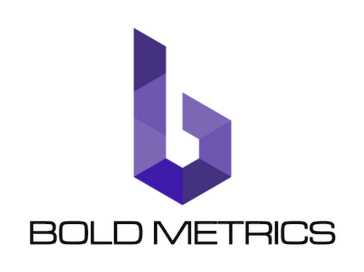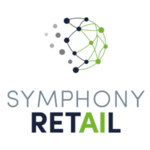Yes, retail intelligence software may be accessible from many devices and platforms. It is designed to work with a variety of operating systems and may be accessed via web browsers, desktop programs, and mobile apps. This enables users to access real-time data and insights from anywhere, at any time, and on any device, making it simple and efficient for retailers to make informed decisions and stay on top of their business.
List of Best Retail Intelligence Software
Epicor Retail is a POS solution designed specifically for the retail industry. With updated features like improved navigation and a Support bar, this system optimizes operations and increases efficiency by accurately tracking sales. Be one step ahead...Read More Epicor Retail
ReBiz is a solution for multi-unit retail analytics. With its advanced tracking capabilities, ReBiz allows you to monitor thousands of locations every day, resulting in a substantial increase of 20-55% in store profitability. Elevate your retail busi...Read More ReBiz
the Botree Retailer App solution for boosting your sales! Give your retailers the ability to easily place orders and unlock new revenue opportunities. Enhance your distribution strategies, increase product availability, and cultivate brand loyalty. E...Read More Botree Retailer App
OttixHow, a retail sales and competitive analytics tool powered by AI technology. Designed for retailers, brands, and distributors, OttixHow offers valuable data-driven insights to optimize sales and increase profit margins. Keep ahead of the competi...Read More OttixHow
Cronycle is a dynamic content curation platform that caters to the needs of professionals by helping them efficiently discover, organize, and share relevant information. With its intuitive workflow, Cronycle ensures that users are always up-to-date w...Read More Cronycle
RetailMetrix is data analytics software designed for retailers. It stores and analyzes crucial data such as sales, labor, and customer information, to provide valuable insights and support decision-making. With user-friendly dashboards and detailed r...Read More RetailMetrix
RetailScape solution for optimizing retail profits. Utilizing the advanced data analysis of Bungee Tech, RetailScape empowers retailers to monitor prices, promotions, product selection, and availability across multiple regions. Elevate your retail st...Read More RetailScape
Bold Metrics is the premier AI solution for garment retailers and brands looking to boost conversion rates, reduce returns, and revolutionize the sizing experience. Our cutting-edge technology leverages body data to create a customizable digital twin...Read More Bold Metrics
Market360 is a retail analytics software designed by eClerx Digital. With advanced data analytics and easy-to-use dashboards, Market360 simplifies decision-making and drives sales for your company. Get a firsthand experience of its capabilities by bo...Read More Market360
ContactPigeon is a marketing automation solution for eCommerce success. Our cutting-edge platform is designed to boost customer engagement, loyalty, and revenue growth. With tailored scenarios for eCommerce, including automated cart abandonment, pers...Read More ContactPigeon
Celerant Command Retail is a retail management solution that enables businesses to effectively oversee all retail operations in real-time. This powerful software offers a variety of features including point of sale, back office sales, inventory manag...Read More Celerant Command Retail
Syndigo is a robust cloud-based platform ideal for businesses to effectively handle and improve their product content and data. Trusted by well-known brands, Syndigo offers comprehensive solutions such as data governance, content delivery, and perfor...Read More Syndigo
FieldStack is a retail management solution designed to enhance operations and improve customer service. With its user-friendly features for efficient inventory management and a seamless omnichannel experience, retailers can increase efficiency and sa...Read More FieldStack
Symphony Retail AI is a retail solution that revolutionizes the way retailers operate, driving higher revenue and enhancing customer experiences. Employing advanced analytics and tailored customer insights, this state-of-the-art software empowers ret...Read More Symphony Retail AI
Experience the power of Salesforce Commerce Cloud, the top e-commerce solution in the market. This all-in-one platform seamlessly integrates online and in-store shopping, while offering advanced AI-powered analytics and integration across sales, serv...Read More Salesforce Commerce Cloud
Prisync is a e-commerce solution for retailers and manufacturers. Our advanced tracking and notification system provides valuable insights into your competitors pricing and product availability, helping you stay ahead of the game. With powerful analy...Read More Prisync
QlikView is business intelligence software designed to simplify data analysis and reporting for IT professionals and end-users. With its user-friendly interface, QlikView allows organizations to easily access valuable insights and make informed decis...Read More QlikView
ScienceSoft, the premier Healthcare CRM tool provider. Our innovative cloud-based platform is specifically designed to elevate patient care and satisfaction. Utilizing cutting-edge features like web content management and email marketing automation,...Read More ScienceSoft
Price2Spy is an advanced price monitoring and comparison software for online retailers, manufacturers, and distributors across various industries globally. Our platform is designed to help eCommerce professionals thrive in todays highly competitive m...Read More Price2Spy
Competera Price Intelligence is the leading solution for retailers seeking to boost sales, enhance margins, and outperform competitors. Our cutting-edge technology empowers retailers to establish effective pricing strategies, while also aiding manufa...Read More Competera Price Intelligence
Learn More About Retail Intelligence Software
- What Is Retail Intelligence Software?
- What Are The Recent Trends In Retail Intelligence Software?
- Benefits Of Using Retail Intelligence Software
- Important Factors To Consider While Purchasing Retail Intelligence Software?
- What Are The Key Features To Look For In Retail Intelligence Software?
- Why Do Businesses Need Retail Intelligence Software?
- How Much Time Is Required To Implement Retail Intelligence Software?
- What Is The Level Of Customization Available In Retail Intelligence Software?
- Which Industries Can Benefit The Most From Retail Intelligence Software?
- Conclusion
What Is Retail Intelligence Software?
Retail intelligence software is a strong tool that enables merchants to acquire detailed insights and improve their overall company plans. It offers a comprehensive perspective of sales, inventory, consumer behavior, and industry trends, allowing retailers to make data-driven decisions. With rising competition and shifting consumer behavior in today's market, retail intelligence software has become a crucial asset for merchants to survive and thrive.
This software collects and analyzes data from a variety of sources, including POS systems, customer databases, and internet sales channels, to provide businesses with real-time, accurate information. It also employs machine learning and other advanced techniques to detect patterns, trends, and outliers that may affect sales and other important performance measures.
One of the primary advantages of implementing retail intelligence software is that it allows companies to better understand their customers. It categorizes customers based on their purchasing habits, tastes, and demographics, enabling companies to develop personalised marketing strategies and improve customer experience. This, in turn, can boost client loyalty and sales. Retail intelligence software can also help retailers improve their inventory management.
Analyzing sales data allows it to estimate demand and determine ideal inventory levels to avoid overstocking and stockouts. This not only increases efficiency, but also lowers expenses and boosts overall profitability. Furthermore, retail intelligence software allows merchants to watch their competitors' activity and market trends. It gives significant information about pricing tactics, promotions, and product assortments, offering shops a competitive advantage in the market.
What Are The Recent Trends In Retail Intelligence Software?
The retail intelligence software market is quickly expanding, driven by the increased demand for data-based decision making in the retail industry. As technology advances and consumer behavior changes, merchants are seeking new solutions to achieve a competitive advantage.
Buyers of retail intelligence software should be aware of the following current trends:
1. Integration Of AI And Machine Learning: Retail intelligence software is increasingly incorporating artificial intelligence (AI) and machine learning (ML). These technologies allow retailers to examine large amounts of data and detect patterns in order to make accurate forecasts and suggestions. Retailers may use AI and machine learning to improve their inventory management, pricing tactics, and targeted marketing campaigns.
2. Real-Time Analytics: Real-time analytics is becoming an increasingly important component in retail intelligence software. With an increasing volume and complexity of data, merchants require real-time insights to make informed decisions swiftly. Retailers can use real-time analytics to monitor and manage their sales, inventory, and customer interactions, allowing them to respond quickly to changing market trends and customer requests.
3. Omnichannel Data Integration: As omnichannel retailing has become the standard, businesses must have a single view of their customers' data across all channels. Retail intelligence software provides omnichannel data integration, allowing businesses to merge data from a variety of sources, including in-store purchases, online transactions, social media interactions, and loyalty programs, to gain a comprehensive picture of their customers.
4. Predictive Analytics: Predictive analytics is a major trend in retail intelligence software. It forecasts future patterns and behaviors by combining historical data with machine learning algorithms. Predictive analytics enables retailers to anticipate customer demand, optimize inventory levels, and tailor marketing activities, resulting in better sales and customer happiness.
5. Cloud-Based Solutions: Cloud-based retail intelligence software is gaining popularity due to its low cost and flexibility. These technologies provide retailers with real-time data and analytics from anywhere, at any time. It also eliminates the need for hardware and software upkeep, making it easier for retailers to grow their businesses.
6. Social Media Monitoring: With the rise of social media, retailers are turning to retail intelligence software to monitor and analyze client sentiments and interactions across several social media platforms. This information can be utilized to boost customer engagement, spot developing trends, and maintain an online reputation.
Benefits Of Using Retail Intelligence Software
Retail intelligence software, also known as retail analytics or retail business intelligence software, is an effective tool for retailers to get important insights into their business operations. It uses advanced data analytic techniques to monitor key performance indicators (KPIs), consumer behavior, inventory levels, and other metrics. Using this software, retailers can make more educated judgments, better their overall performance, and remain ahead of the competition.
Here are some of the major advantages of adopting retail intelligence software:
1. Real-Time Data Analysis: Retail intelligence software allows merchants to see a current and accurate picture of their business. This enables them to immediately detect and handle any difficulties or opportunities that occur, lowering the likelihood of missed sales or wasted resources.
2. Improved Inventory Management: Retailers can acquire a better understanding of their inventory levels using retail intelligence software. This can assist them optimize their stock levels, lowering the danger of overstocking or stockouts. Understanding client demand enables retailers to make more precise purchase selections, optimizing revenues.
3. Improved Customer Experience: Retail intelligence software enables merchants to better understand their customers by tracking their activities, preferences, and purchasing patterns. This enables them to adjust their services and marketing techniques to their consumers' specific demands, resulting in a more personalized and enjoyable purchasing experience.
4. Increased Sales: Retail intelligence software assists retailers in identifying top-performing products, best-selling items, and popular categories. By focusing on these areas and making data-driven decisions, merchants may boost sales and revenue.
5. Cost Savings: Retail intelligence software can also assist merchants in identifying cost-cutting opportunities and streamlining operations. Retailers may save money and enhance profits by streamlining processes, reducing waste, and making data-driven decisions.
6. Competitive Advantage: In today's fast-paced retail environment, maintaining a competitive edge is critical to survival. Retail intelligence software gives retailers a competitive advantage by delivering vital insights and data that competitors may lack. This allows them to make more educated judgments and stay ahead of the curve.
Important Factors To Consider While Purchasing Retail Intelligence Software?
When it comes to selecting retail intelligence software, you must examine a few critical things to guarantee that you are making the best investment for your company.
Here are some crucial factors to consider before making a decision:
1. Business Needs: Your business's needs should be the first and most important consideration. Take note of the exact features and capabilities that your company needs to increase efficiency and growth. This will allow you to limit down your choices and select the software that best meets your requirements.
2. Data Management: The focus of retail intelligence software is on data. It is critical to understand how the program collects, processes, and organizes information. Look for a system that can handle big amounts of data and has strong data management capabilities including real-time analytics, integration, and visualization.
3. Integration And Compatibility: Retail intelligence software should work easily with your existing systems, including POS, inventory management, and CRM. This ensures that all of your data is synchronized and accurate, allowing for more informed decision-making.
4. Usability: The software should be simple to use and have a user-friendly interface. Your personnel should be able to navigate and use the system without additional training. This saves time and resources while also allowing for a smooth program adoption.
5. Scalability And Customization: As your firm expands, so will its data and analytics requirements. Choose retail intelligence software that can handle this expansion and provides customization choices to fit the system to your individual business needs.
6. Security: When handling sensitive corporate data, security should be a primary focus. Make sure the program has strong security mechanisms in place to keep your data safe from cyber attacks and unauthorized access.
7. Support And Training: The vendor's support and training services are critical considerations when choosing retail intelligence software. Make sure they provide sufficient training and continuous support to help you get the most out of the program.
8. Cost: Finally, assess the total cost of the program, including any additional fees for implementation, training, and support. Compare many possibilities and select the one that matches your budget while providing the best value for your company.
By keeping these things in mind, you can make an informed selection when selecting retail intelligence software, putting your company on the route to success. Remember to properly investigate and test many choices to find the greatest fit for your company.
What Are The Key Features To Look For In Retail Intelligence Software?
When it comes to selecting Retail Intelligence Software, there are a few crucial elements to consider to guarantee you're making the best investment for your company. These capabilities will not only help you streamline company processes, but will also provide essential insights for decision making and sales growth.
Here are the key elements to look for in Retail Intelligence Software:
1. Real-Time Data Analytics: One of the most significant characteristics to look for in Retail Intelligence Software is the capacity to collect and analyze real-time data from multiple sources. This will provide you with current information on sales, inventory, and consumer patterns, allowing you to make rapid and informed decisions.
2. Integration Capabilities: Make sure the Retail Intelligence Software is compatible with your current systems, such as POS, CRM, and inventory management. This allows for continuous data flow and eliminates the need for manual data entry, saving you time and minimizing the likelihood of errors.
3. Customizable Reporting: Look for software that allows you to produce reports that are specific to your business requirements. This will allow you to track key indicators and evaluate data in a way that is appropriate for your organization.
4. Predictive Analytics: A high-quality Retail Intelligence Software should be able to forecast future trends and potential threats. This will give you significant insights into making strategic decisions and staying ahead of the competition.
5. Competitive Intelligence: Ensure that the software has tools that allow you to track your competitors' prices, promotions, and other strategies. This will allow you to remain competitive and adapt your own strategy accordingly.
6. Usability: Look for Retail Intelligence Software that is easy to use and browse. This will save you time and stress while also ensuring that all team members can use it efficiently.
7. Mobile Accessibility: In today's world, software must be available on the go. Make sure the Retail Intelligence Software you select includes a mobile app or a web-based platform that can be accessed from any device.
8. Scalability: As your firm expands, your software requirements will change. Choose Retail Intelligence Software that can meet your future requirements and is scalable to assist business expansion.
Consider these essential aspects before investing in Retail Intelligence Software to help your business prosper and stay ahead of the competition. Before making a selection, conduct research and compare several software options to determine the greatest fit for your organization.
Why Do Businesses Need Retail Intelligence Software?
In today's fast-paced and competitive retail world, businesses require every advantage possible to stay ahead of the competition. Here's where retail intelligence software comes in. This sophisticated technology enables organizations to collect, analyze, and interpret data from diverse retail operations in order to make informed strategic decisions. One of the main reasons firms want retail intelligence software is to better understand their customers.
Businesses may better meet the demands of their customers by following and analysing their behaviour, preferences, and purchasing patterns. This increases consumer happiness and loyalty, leading in improved sales and revenue. Furthermore, retail intelligence software assists organizations in optimizing their inventory management.
Businesses can avoid stockouts and overstocking by tracking inventory levels, sales patterns, and product performance to ensure that they have the correct products on hand at the right time. This not only increases customer happiness but also lowers surplus inventory and associated costs. Another key advantage of retail intelligence software is the capacity to deliver real-time insights.
Businesses may use the software's dashboards and reports to monitor sales, inventory, and other vital indicators in real time, allowing them to make quick and educated choices. This is especially important in today's dynamic retail world, where trends and client preferences can shift quickly. Retail intelligence software not only manages customers and inventory, but it also optimizes pricing and promotions.
The software can provide the most profitable pricing and promotion tactics based on historical data and industry trends. Finally, retail intelligence software can help organizations find and capitalize on new prospects. Businesses can discover new product ideas, target new customers, and identify prospective collaborations and partnerships by evaluating data from various sources such as social media, online reviews, and market trends.
How Much Time Is Required To Implement Retail Intelligence Software?
The time required to implement retail intelligence software varies according to the software solution and the size and complexity of the retail firm. On average, the implementation process takes three to six months. However, smaller software solutions can be implemented in a few weeks, whereas larger and more sophisticated firms may require up to a year to fully install the software.
During the initial stages, the software provider will collaborate closely with the retail firm to collect and analyze data, tailor the software to their specific requirements, and ensure a smooth interface with current systems. This could take many weeks to a month. The software will then be tested in a controlled environment to identify any flaws and make required improvements.
This phase might last up to three months, depending on the size of the organization and the software's capabilities. Once the testing step is complete, the software will be ready to be deployed and used in a live environment. Training will be offered to ensure that all users are familiar with the software and its capabilities. This final phase can last anywhere from one to two months.
Overall, the adoption of retail intelligence software takes time and work, but the benefits it provides to the retail industry might outweigh the initial cost. To guarantee a successful installation, organizations must collaborate closely with the software vendor and establish a clear timeframe and plan.
What Is The Level Of Customization Available In Retail Intelligence Software?
Retail intelligence software provides a number of features and capabilities to assist retailers in gathering and analyzing data, tracking industry trends, and making informed business decisions. One important factor to consider when selecting retail intelligence software is the level of flexibility available. This refers to the software's capacity to adapt to your company's unique objectives and goals.
The level of flexibility possible in retail intelligence software varies significantly depending on the software and vendor. While some may take a one-size-fits-all approach, others offer a fully configurable platform that can be tailored to your company's specific requirements. Data analytics, reporting, and dashboards are some of the most prevalent customization options in retail intelligence software.
With the option to personalize these capabilities, merchants can select the data, KPIs, and visualizations that are most relevant and useful to their operations. Furthermore, shops can select how their data is presented, whether through graphs, charts, or other visualisations. This is especially useful for shops who have certain branding rules or wish to deliver data in a specific format to clients or stakeholders.
Furthermore, customization can include the software's user experience and interface. Some retail intelligence software may include many layouts, color schemes, and navigation options to accommodate varied user preferences and make the platform more user-friendly. When determining the extent of customization in retail intelligence software, it is critical to evaluate your company's objectives and goals. Look for software that includes features and capabilities that are relevant to your aims. This will allow you to personalize the program to best serve your organization and get the most out of the data acquired.
Which Industries Can Benefit The Most From Retail Intelligence Software?
Retail Intelligence Software (RIS) is a strong tool that enables firms to make educated decisions and remain competitive in the retail sector. It uses data analytics, predictive modeling, and visualization to deliver real-time information about customer behavior, market trends, and sales performance. While RIS can assist every retail business, it is particularly useful in certain industries.
1. Fashion And Apparel Industry: The fashion and apparel market is highly competitive and continuously evolving, so businesses must stay up to date on the newest trends and consumer preferences. RIS can assist these organizations by giving real-time data on customer behavior and market trends, allowing them to make more educated decisions about inventory management, product selection, and pricing strategies.
2. The Grocery And Supermarket Industry: Grocery and supermarket companies handle a vast number of products and consumers on a regular basis. RIS can assist these organizations by analyzing sales data, finding high-performing goods, and projecting demand. This enables them to optimize their inventory levels and ensure that the right products are in stock at the right time, resulting in increased sales and less waste.
3. Electronics And Technology Industry: With the fast-paced nature of the electronics and technology industries, firms must constantly innovate to stay ahead of the competition. RIS can assist them by offering insights into consumer preferences, popular product features, and market trends. This enables firms to make informed decisions about product development and marketing tactics, resulting in higher sales and consumer happiness.
4. Home And Furniture Industry: The home and furniture sector is extremely competitive, with companies continuously fighting for consumer attention. RIS can assist these organizations by analyzing customer data and recognizing trends in home decor and furniture. This allows them to adapt their product offers and marketing methods to meet current consumer demands and preferences.
5. Pharmaceutical And Healthcare Industry: The pharmaceutical and healthcare industries are becoming increasingly competitive, making it critical for firms to make data-driven decisions to stay ahead. RIS can provide real-time insights about customer behavior, popular products, and market trends, allowing firms to optimize inventory and pricing strategies while also increasing customer loyalty and retention.
Conclusion
Finally, selecting the appropriate Retail Intelligence Software can substantially benefit organizations in the retail sector. By delivering important insights and data, these cutting-edge software solutions can assist merchants in making educated decisions, streamlining processes, and increasing profitability. When looking for the best Retail Intelligence Software, consider features, compatibility, integration, and price.
Take the time to properly investigate and compare several possibilities to determine the greatest fit for your specific business requirements. With the proper Retail Intelligence Software in place, you can boost your retail strategy, improve consumer experiences, and remain ahead of the competition. As technology advances, investing in Retail Intelligence Software is a wise decision for any firm trying to succeed in the retail industry.
Retail Intelligence Software FAQ's
Can Retail Intelligence Software Be Accessed Across Multiple Devices And Platforms?
Is Retail Intelligence Software Future-Proof And Adaptable To Emerging Technologies Like AI, Blockchain Or IoT?
Yes, Retail Intelligence Software is intended to be future-proof and adaptable to new technologies like AI, blockchain, and IoT. This software uses powerful algorithms and data analytics to collect and analyze real-time data from a variety of sources, making it adaptable to new technologies as they become available. This enables merchants to remain ahead of the curve and make sound judgments in a continuously changing sector.
Is There A Free Trial Offered To Assess Retail Intelligence Software Before Committing?
Yes, many retail intelligence software vendors provide free trials so that potential customers can evaluate their platform before committing to a commercial subscription. This enables merchants to examine the software's features and benefits and assess whether it fulfills their specific business requirements. It also allows them to make an informed decision without incurring financial risk. Contact your selected software vendor to learn about their free trial offers.
Does Retail Intelligence Software Offer Data Security Features And Meet Regulatory Compliance Standards?
Yes, most retail intelligence software includes robust data security features like encryption, user authentication, and role-based access control to protect sensitive data. Furthermore, many retail intelligence software solutions adhere to regulatory standards such as PCI-DSS and GDPR, ensuring that your company follows industry requirements and avoids costly penalties. This ensures that your data is secure and that your company is functioning within legal limits.
Can Retail Intelligence Software Integrate Seamlessly With Existing Tools And Platforms?
Yes, most retail intelligence software is designed to interact effortlessly with existing tools and platforms, making it simple for retailers to incorporate it into their existing processes with minimal interruption.
Retailers may gather and analyze data from many sources in one location via connectors for POS systems, inventory management software, and eCommerce platforms, giving them a full perspective of their business performance. This allows merchants to make more efficient and informed decisions, saving them time and resources.






















